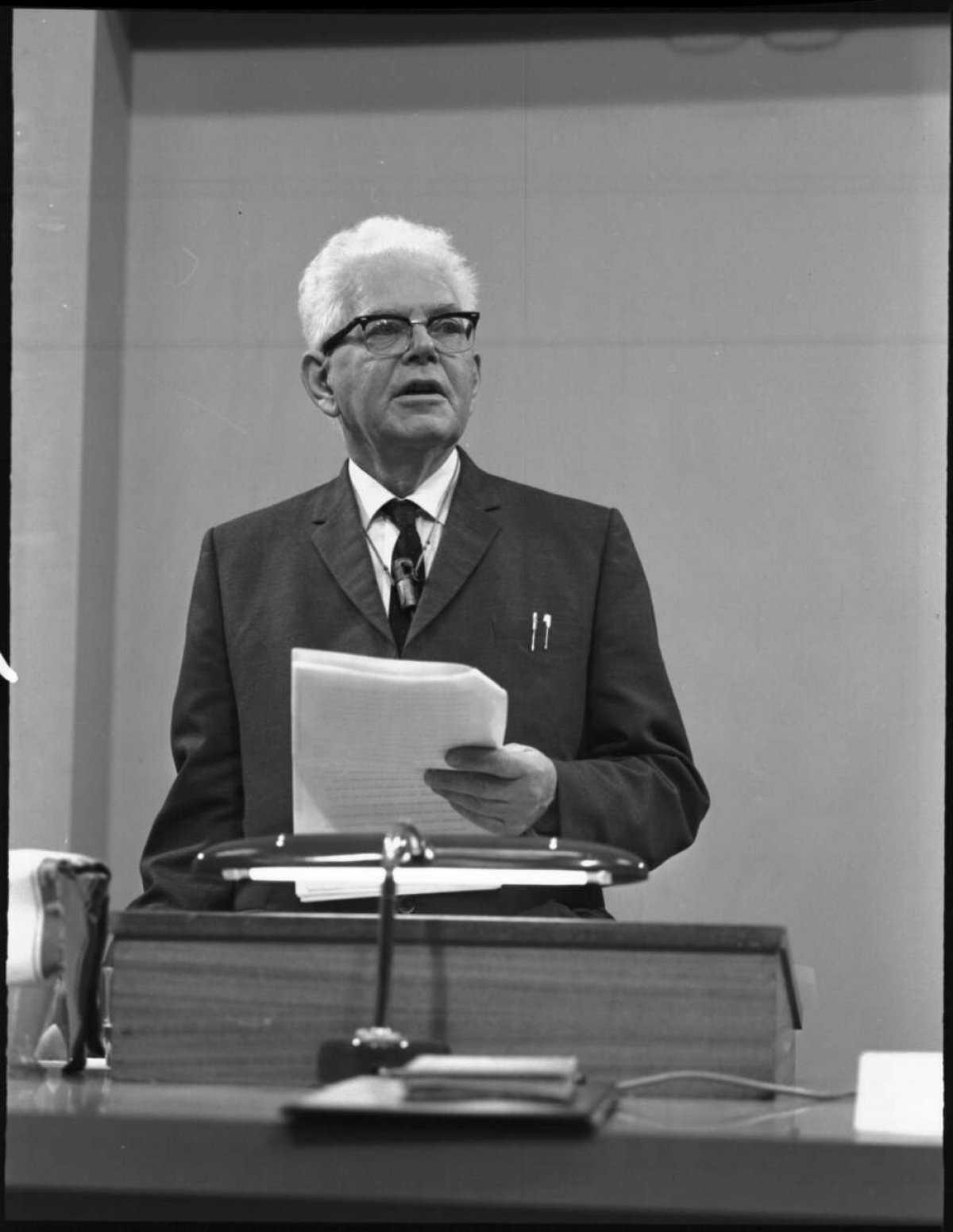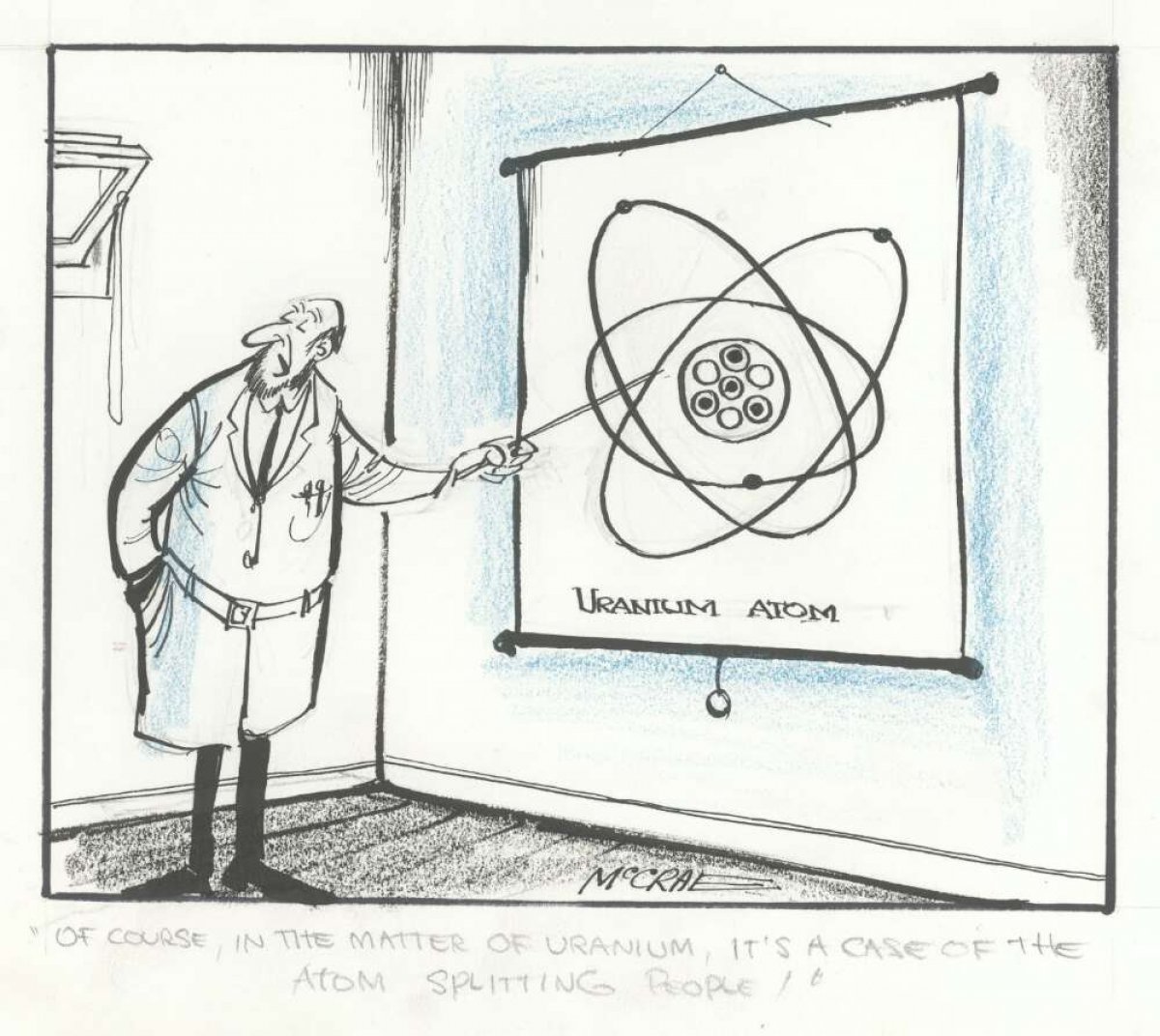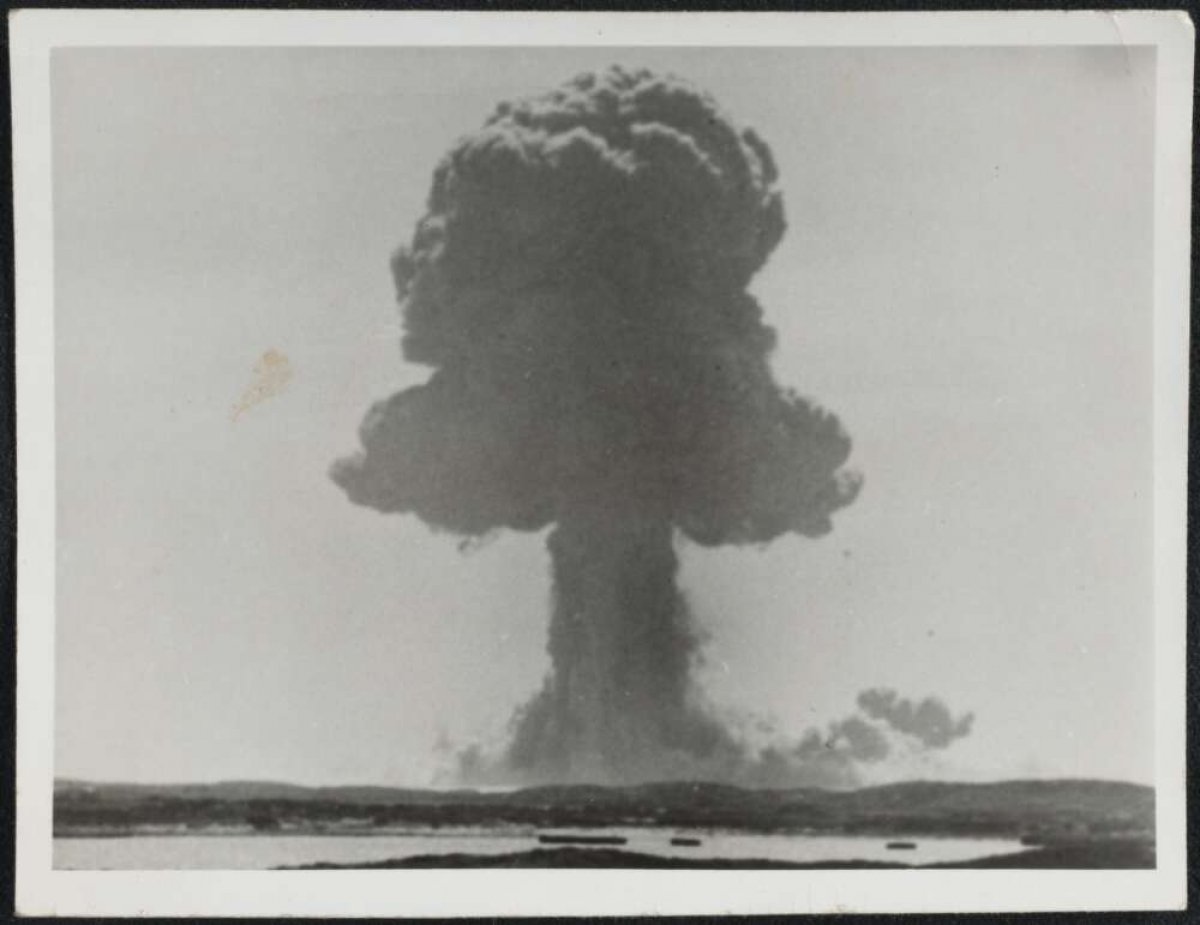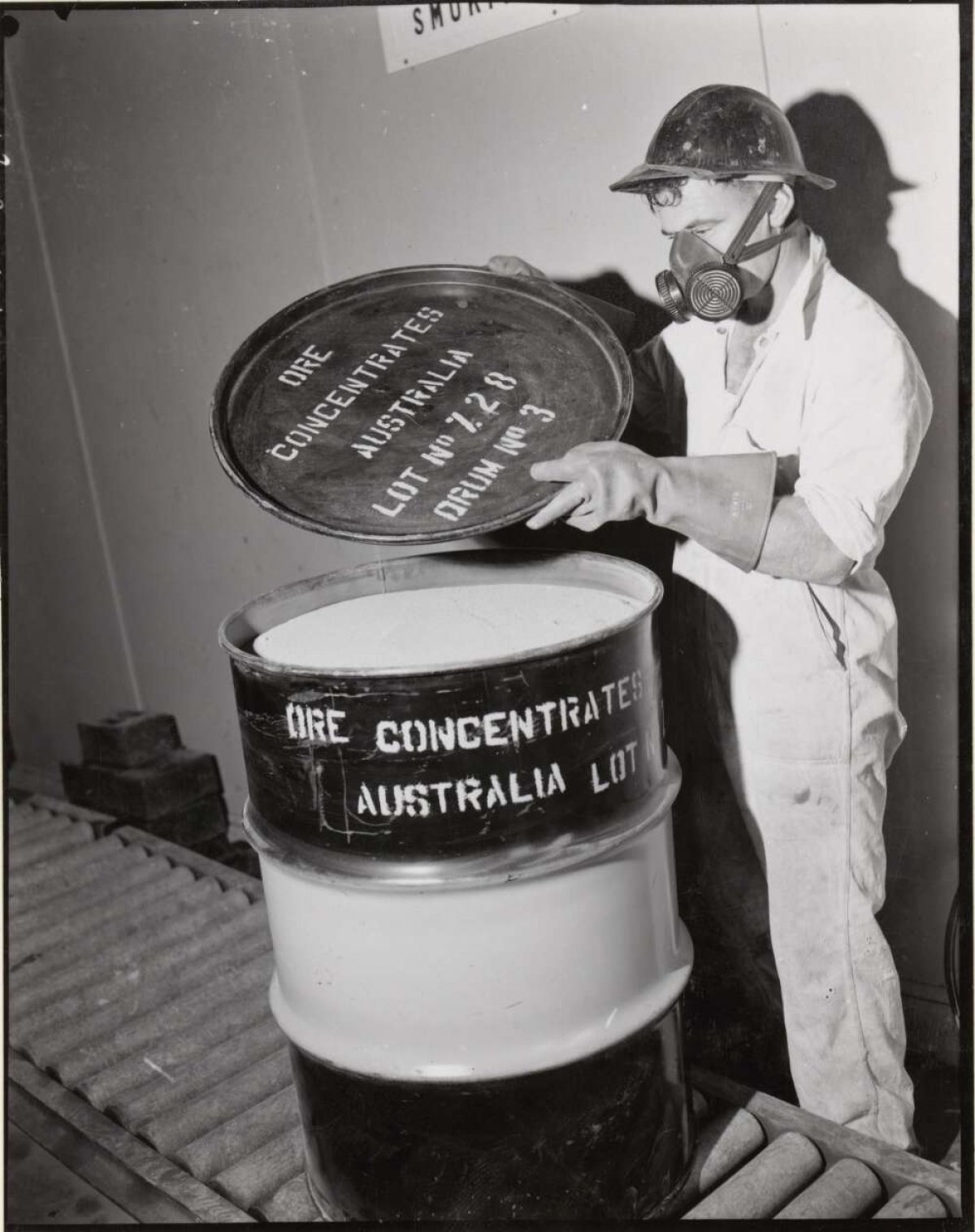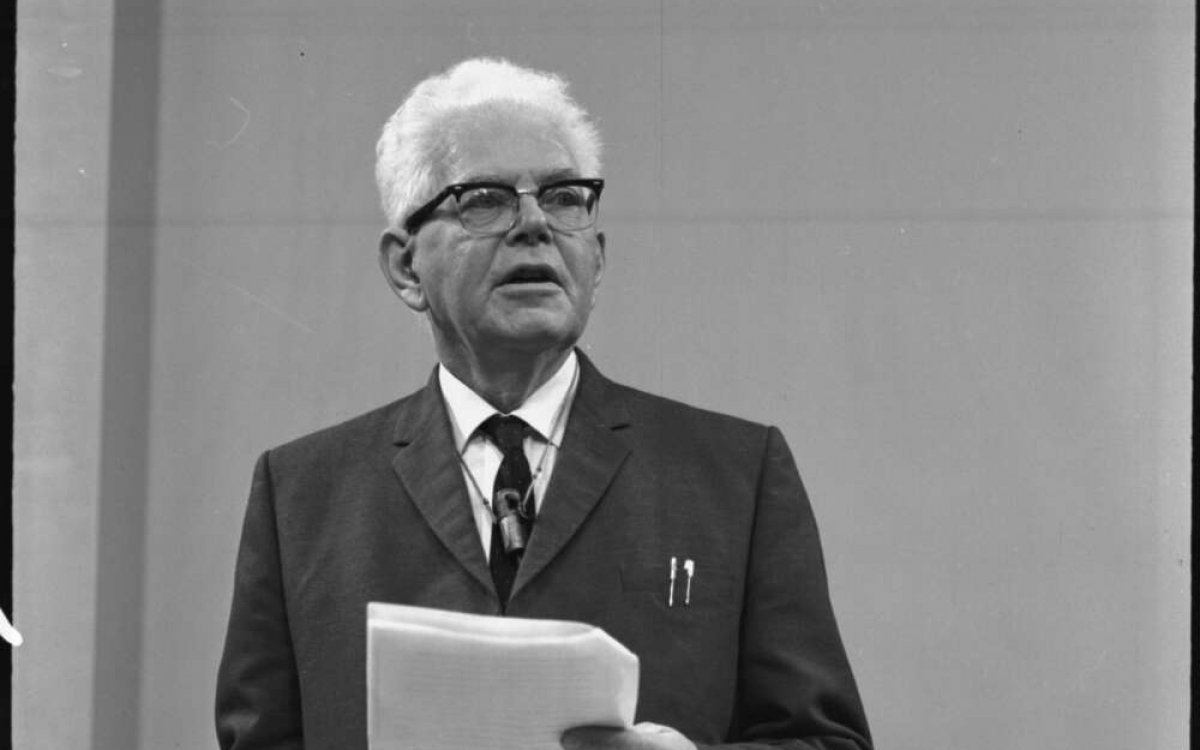
Mulligan, J. A. (John Aloysius), 1927-1996. (1970). Sir Mark Oliphant lecturing at the University of Sydney, 1 September 1970 [1] [picture] / John Mulligan. http://nla.gov.au/nla.obj-145323842
Sir Mark Oliphant (1901-2000) was an Australian physicist who is known for his work in nuclear physics and radar, and, later, for becoming governor of South Australia. During the Second World War, Oliphant worked on the development of a more sophisticated radiolocation system—known today as ‘radar’. It was at this time that Oliphant read the findings of physicists Otto Frisch and Rudolf Peierls; they showed that it was possible to create an atomic bomb through a process known as nuclear fission. Following an investigation by a special committee of top nuclear physicists in Britain, Oliphant sent the findings to the United States’ Uranium Committee. After some pressure from Oliphant, the committee began work on what would come to be called the Manhattan Project.
In 1967, Oliphant was interviewed by Hazel de Berg. In the interview, Oliphant discusses his childhood, schooling and work with radar developments. He also talks about his move to the United States and his role in the Manhattan Project.
In 1992, Oliphant was interviewed again, this time by science and technology historian Ann Moyal.
Use the excerpts from the recordings to find out more about the events surrounding the creation of atomic weapons, and Oliphant’s thoughts on science and being a scientist.
Key terms:
- atomic
- physicist
- nuclear fusion/fission
- Manhattan Project
- radar
Sir Mark Oliphant discusses his early childhood and his schooling.
Sir Mark Oliphant shares his thoughts on the state of Australian science and the creation of a national science body.
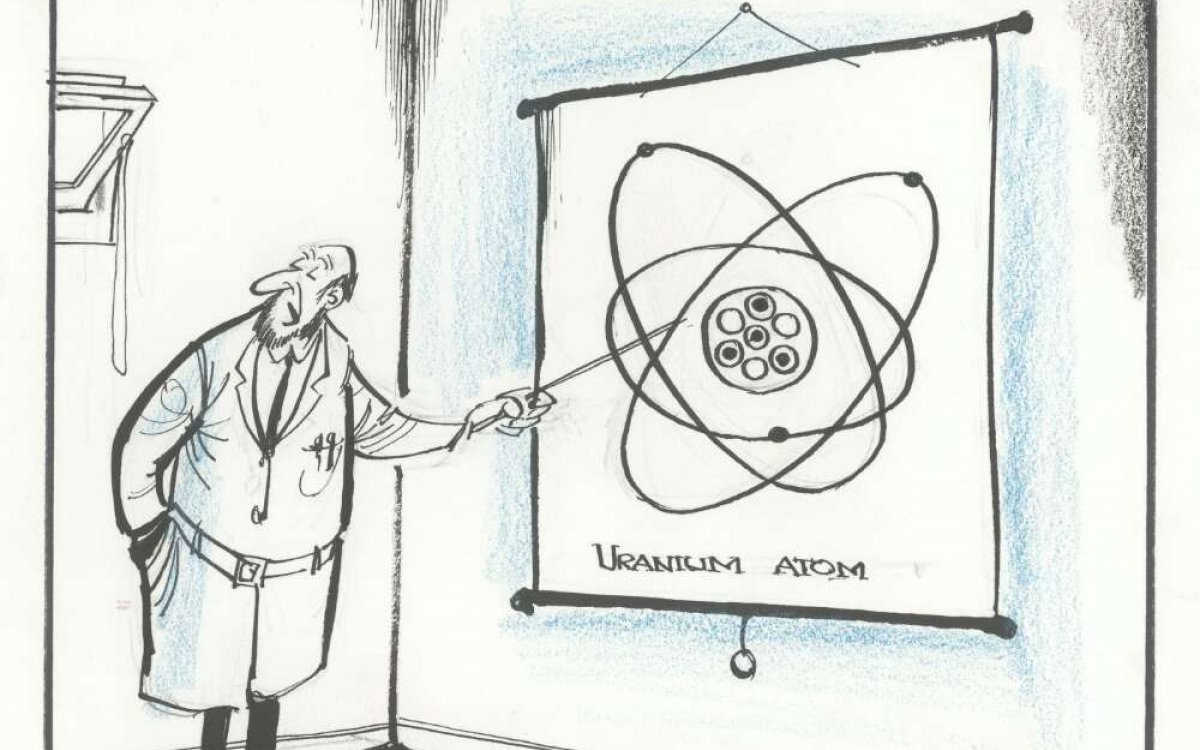
McCrae, Stewart, 1919-. (1963). "Of course, in the matter of uranium, it's a case of the atom splitting people!" [Nuclear physicist giving a lecture on the uranium atom] [picture]/ McCrae. http://nla.gov.au/nla.obj-145842939
Sir Mark Oliphant discusses his feelings towards atomic energy in 1992, many years after his interview with Hazel de Berg
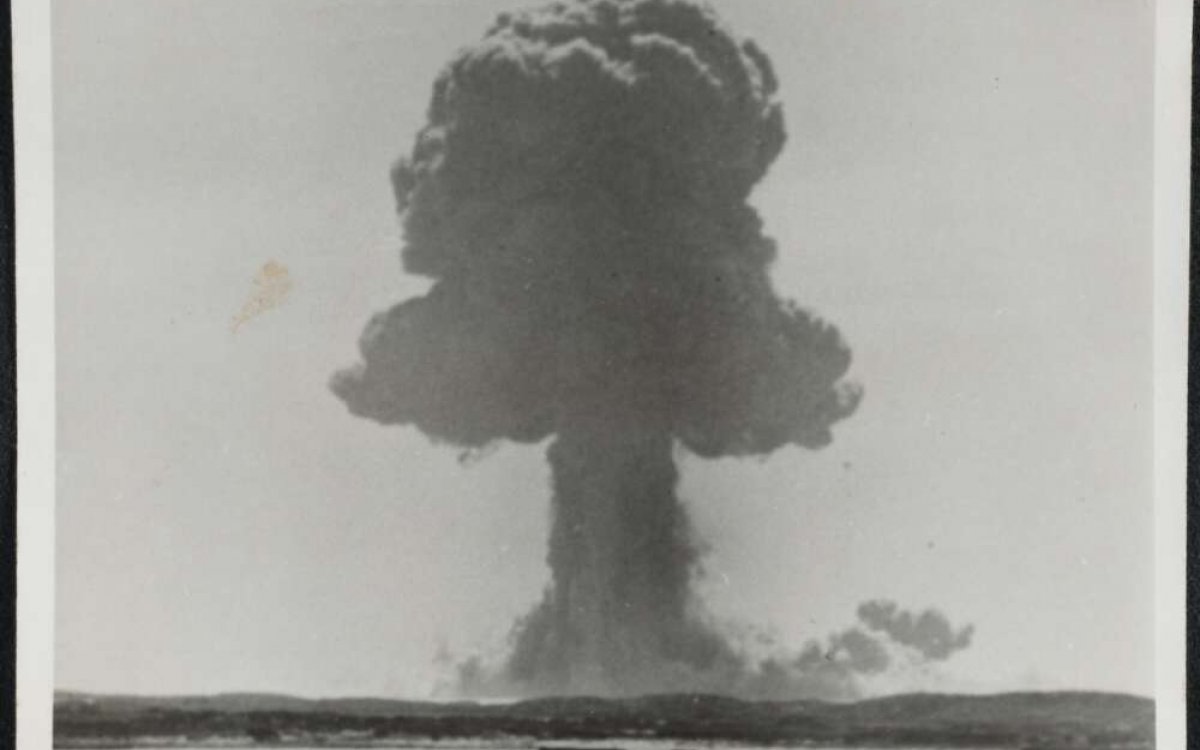
(1956). First of the atomic bomb tests taken from a distance of 12 miles, Trimouille Island in the Montebello Islands, Western Australia, 16 May 1956 / photographed by a British serviceman. http://nla.gov.au/nla.obj-138166219
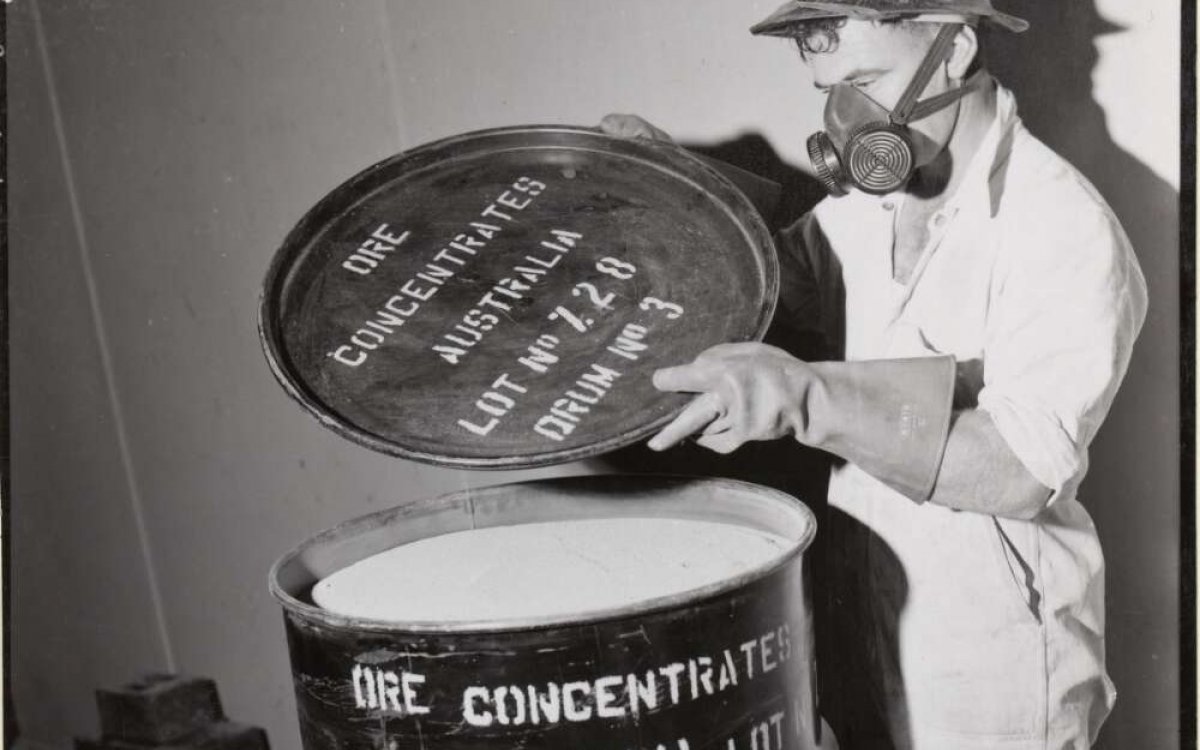
Bottomley, Cliff & Australian News and Information Bureau. (1957). Sealing uranium ore in 500lb drums at the Port Pirie Uranium works for shipment 1957 [picture]. http://nla.gov.au/nla.obj-137416940
Activities
- Oliphant was interviewed by two different people 25 years apart. What differences can you find between the two interviews? How might time affect our memory of events we witnessed/took part in?
- Ask students to think of an incident that happened in the previous class or break before this one. Divide students into pairs. Ask one student to describe the event, while the other records it.
At the end of the class, do the same activity, with the same students describing the same event. Compare the description given in the first video (made at the start of the class) with the second video (made at the end of the class). What changed? What stayed the same?
- From what you’ve heard, did Oliphant change his opinion about anything? What? Why might people change their opinions over time? Would this help or hinder scientific progress?
- Oliphant talks about the future of science in Australia and the things that might hinder science. He also talks about the responsibilities of being a scientist and sharing great discoveries.
- What social forces have an impact on science and scientific research? Think about times when scientific breakthroughs have been made due to social pressures e.g. pandemics, conflict, etc.
- As a class, find a ‘controversial’ scientific discovery of the last century. Place yourself in the role of the scientist(s) who discovered it. Thinking about society at the time, make a list of the pros and cons of announcing your discovery to the world. Some things you might consider in making your list are: What might stop you from announcing the discovery? Will it do more good than harm? Who will be affected by the announcement? Who will benefit? Who will be worse off?
